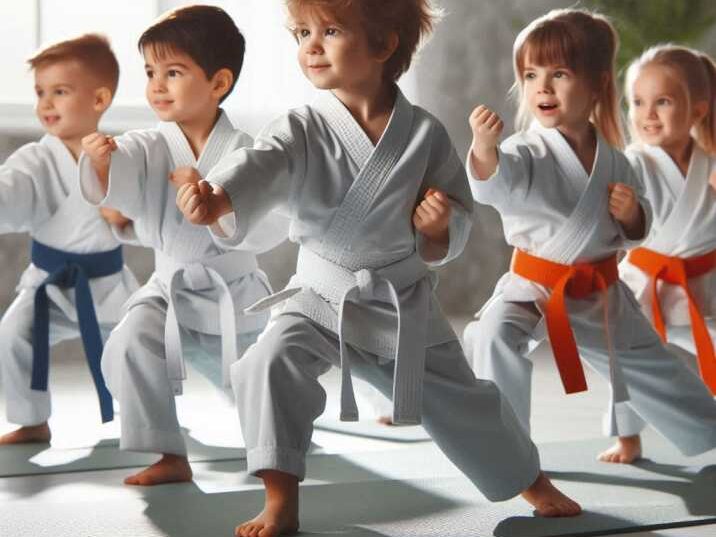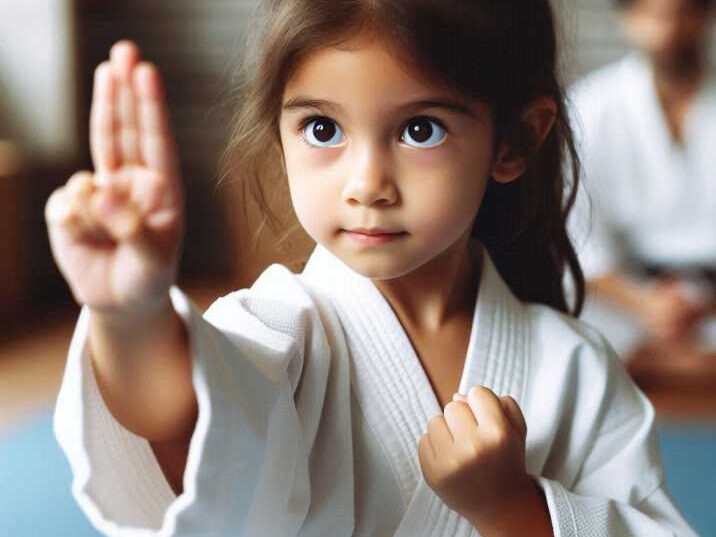Introduction
Table of Contents
Introducing martial arts to children as young as three years old may seem surprising, but it can be a fantastic way to foster important skills. At this age, children are like sponges, ready to absorb new information and experiences. Martial arts for 3-year-olds offer a unique opportunity for physical activity, discipline, and social interaction. These classes help young children develop concentration, coordination, and confidence while having fun. In this article, we’ll explore why martial arts is an excellent choice for preschoolers, the benefits of training at a young age, and how to choose the right class for your little one.

What Are Martial Arts?
Overview of Martial Arts
Martial arts encompass various styles and techniques, including striking, grappling, and self-defence. Popular forms include karate, taekwondo, judo, and Brazilian jiu-jitsu. Each style has its philosophy and techniques, emphasising discipline, respect, and physical fitness.
Types of Martial Arts for Young Children
While many styles suit kids, some may be more appropriate for 3-year-olds. Karate and taekwondo are popular choices, as they incorporate basic movements, fun drills, and games that keep young children engaged. Judo focuses on falling safely and using an opponent’s energy against them, making it ideal for teaching balance and coordination.
Why Martial Arts for 3-Year-Olds?
1. Improved Concentration and Focus
Training in martial arts requires children to pay attention to instructions and practice techniques. This focus can translate into improved concentration in school and other activities. In a study published in the Journal of Sport & Exercise Psychology, researchers found that children who participate in martial arts exhibited greater attention spans and better impulse control.
2. Physical Fitness and Coordination
Martial arts provide a fun way for kids to stay active. At a young age, children are developing their gross motor skills, and martial arts can enhance coordination, balance, and agility. Classes often include jumping, kicking, and various movements that promote overall fitness and health.
3. Discipline and Respect
Martial arts instill a sense of discipline in young children. They learn to follow instructions, respect their instructors, and practice self-control. The structured environment of martial arts classes helps kids understand the importance of rules and boundaries, which is valuable in all areas of life.
4. Boosted Confidence and Self-Esteem
As children master new skills and techniques, they build confidence in their abilities. Achieving new belts or completing challenging tasks in class can lead to improved self-esteem. A study in the International Journal of Sports Science & Coaching found that children participating in martial arts often show enhanced confidence and self-worth.

5. Social Interaction and Teamwork
Martial arts classes encourage social interaction among peers. Kids learn to work together, support one another, and communicate effectively. These interactions help develop important social skills and foster friendships, making martial arts a great way to meet new friends.
Choosing the Right Martial Arts Class
When selecting a martial arts program for your 3-year-old, it’s essential to consider several key factors:
- Instructor Experience: Seek instructors who specialize in teaching young children. They should have the skills to create a fun and engaging atmosphere while promoting learning and safety. A qualified instructor can adapt lessons to suit the developmental needs of preschoolers.
- Class Structure: Look for classes designed specifically for young kids, incorporating games, fun drills, and age-appropriate techniques. This structure helps maintain children’s interest and keeps them engaged while learning fundamental skills.
- Safety Protocols: Ensure the dojo or training facility has strict safety measures in place, including appropriate padding, safety gear, and a clean training space. A safe environment is crucial for allowing children to explore and learn without risk of injury.
- Trial Classes: Many studios offer trial classes that give your child a chance to experience the martial arts environment before making a long-term commitment. These trials help determine if the program is a good fit for your child’s personality and interests, making the decision easier for both parents and kids.
Questions to Ask
- What is the instructor’s experience with young children?
- How is class time structured?
- What safety measures are in place?
- Are there opportunities for family involvement?
Table of Information: Benefits of Martial Arts for 3-Year-Olds
| Benefit | Description |
|---|---|
| Improved Concentration | Enhances attention span and impulse control |
| Physical Fitness | Promotes health, agility, and coordination |
| Discipline | Teaches respect for instructors and rules |
| Confidence | Builds self-esteem through skill mastery |
| Social Skills | Encourages teamwork and communication with peers |
Conclusion
Martial arts for 3-year-olds offer more than just physical activity; they provide essential life skills that can shape a child’s future. By fostering concentration, discipline, and confidence, martial arts can set the foundation for a healthy, active lifestyle. Whether your child is interested in karate, taekwondo, or another form of martial art, finding the right class can make a significant difference in their development. Embrace this opportunity for your little one to learn and grow through martial arts!
FAQs
1. Is martial arts safe for 3-year-olds?
Yes, martial arts can be safe for young children when taught in a structured environment by experienced instructors.
2. What age should my child start martial arts?
Many programs accept children as young as 3 years old, making it an excellent time to begin.
3. How often should my child attend classes?
Once or twice a week is generally recommended for young children to maintain their interest and enthusiasm.
4. Do I need to buy special equipment?
Many classes provide the necessary equipment, but you may need to purchase a uniform or gi.
5. Can martial arts help with my child’s behaviour?
Yes, the discipline and respect taught in martial arts can improve behaviour at home and in school.


